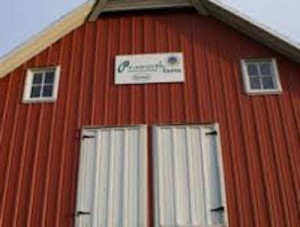Technology of organic farming topic of annual field day
Chronicle Media — August 23, 2015
PrairiErth Farm in Atlanta, Ill. will host another field day for farmers to discuss organic agriculture tools.
An innovative central Illinois farmer will share his experience using the technologies of organic agriculture to increase the profitability of his farm during a field day on Wednesday, Sept. 8 from 9 a.m. to noon at PrairiErth Farm in Atlanta, Ill.
Cover crops, crop rotation and the integration of livestock and crops are all key technologies that can help farmers achieve resilience and profitability. Dave Bishop has been farming at PrairiErth for 30 years and he will provide an overview of the farm, including adding value and resilience through integrating livestock and crops into complex rotations.
Other speakers include Richard Ritter with Flanagan State Bank. He will explain farm financing and ways that new and existing farmers can make their farms more profitable. Dr. Sam Wortman and Dr. Anthony Yannarell from the University of Illinois will discuss research they are conducting on the farm that will help farmers develop a better understanding of cover crops and how they can improve soil health and productivity.
This field day will build upon two other organic farm field days that were held in June and July of this year. More than 200 farmers attended those events, and a strong turnout is expected at PrairiErth as well.
Previous field days attracted a diverse group of farmers who want to learn more about organic farming. Part of the reason for the increased interest is the potential for farmers to generate more income per acre with organic crops.
According to data from FinBin from the University of Minnesota, one of the largest sources of farm financial and production benchmark information in the world, the strong demand for organic grain results in the projected net return per acre for organic corn in 2015 to be $646 compared to $42 for non-organic corn.
“You cannot run a business selling what consumers don’t want,” said Bishop. ‘It is in the best interest of farmers to reduce their input costs and sell grain at high prices. The conventional model has farmers paying high input costs and selling grain at low prices. On top of that, the monoculture model is not equipped to cope with uncertainty.”
For more information, contact Bill Davison, Extension unit educator, Local Foods and Small Farms, Livingston, McLean and Woodford Unit (309) 663-8306, wdavison@illinois.edu
— Technology of organic farming topic of annual field day —



